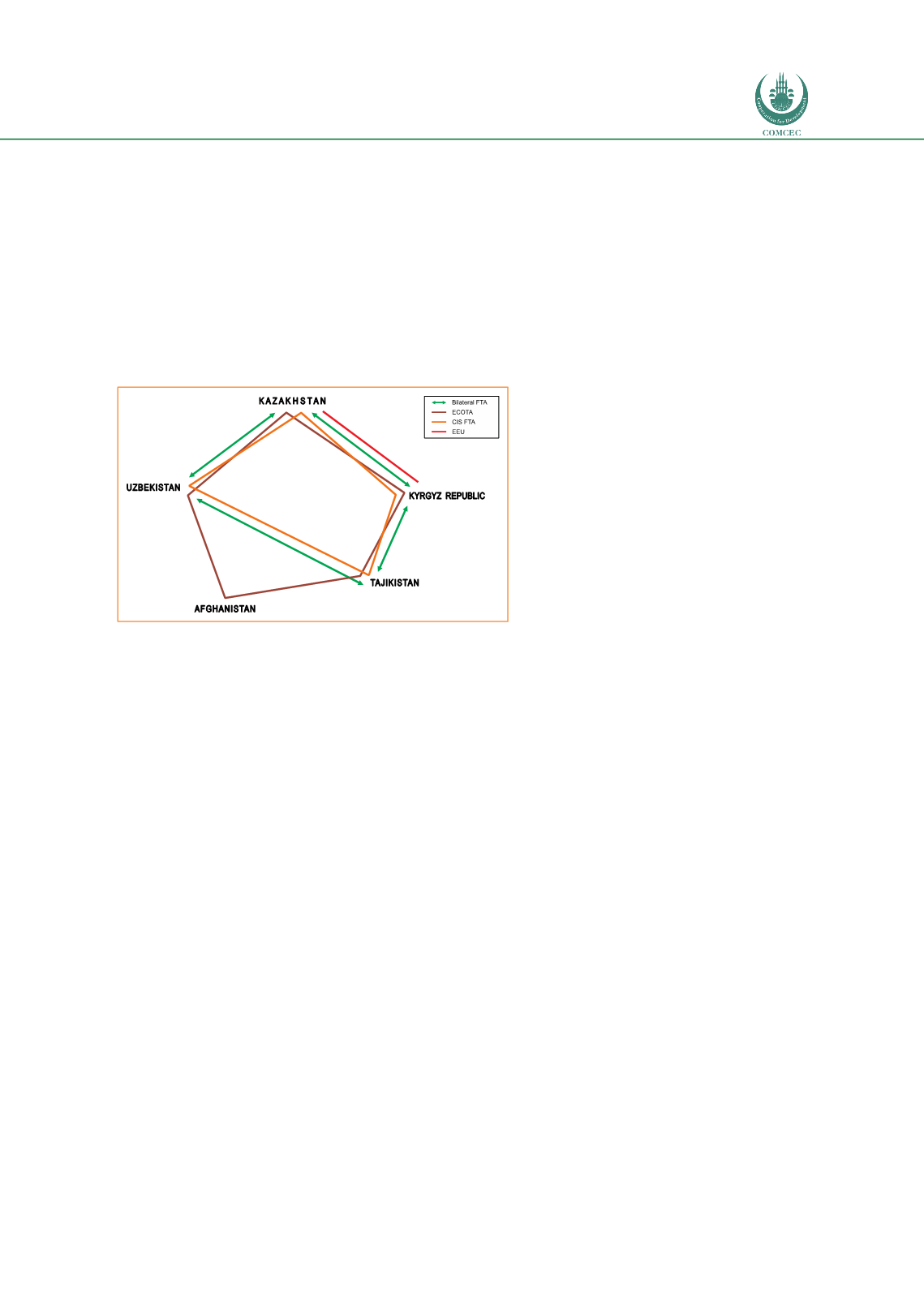

Improving Transnational Transport Corridors
In the OIC Member Countries: Concepts and Cases
101
and (ii) the CAREC Federation of Carrier and Forwarder Associations (CFCFA), which is a
private nonprofit organization.
Trade Agreements
Each country in corridor 3 is being a party to at least one FTA. Except Afghanistan, all countries
have also bilateral FTAs. The following figure shows bilateral and regional FTAs in corridor 3.
A complete overview of eight agreements in force in these corridor countries is given in
Appendix 3.
Figure 33: Trade Agreements in CAREC 3
Source: Fimotions (2017).
Kazakhstan and Kyrgyz Republic are the most open countries. They are involved in all regional
FTAs, which are ECOTA, CIS, and EEU. Again, this explains their high trade performance (see
Figure 34). At the time of this report, sources show that all of these agreements are still in
effect. However, the compliance with and the implementation of the agreements are not
completely assured since the following barriers still persist in the region:
Uzbekistan has the most restrictive transit regime in CAREC. It has a differentiated
scheme of fees for each of the neighbor countries, and particularly discriminates
against Tajikistan due to their tense bilateral relations.
In terms of railways, Uzbekistan is an important transit country for Afghanistan. Goods
carried in trains pass through Termez and stop at Mazar-e-Sharif terminal in
Afghanistan. Counter intuitively, Uzbekistan bans Afghanistan exports from entering
Uzbekistan by train. Rather, freight trains are stopped at Hairatan, cargo is off-loaded
onto trucks, and ferried across the Amu-Darya. The trains then cross the river,
returning empty to Termez.
The Kyrgyz Republic still maintains its bilateral status with Tajikistan, thus restricting
third country vehicles and goods from crossing at Karamyk. Thus, international transit
traffic is diverted to Batken province and crosses at Kyzyl Bel-Guliston (KGZ-TAJ),
adding 250-300 km to the route.
These result in the increase of the cost of transport and in barriers to regional trade, which
effectively drive traffic away from CAREC corridors, and demonstrate the challenges of
















